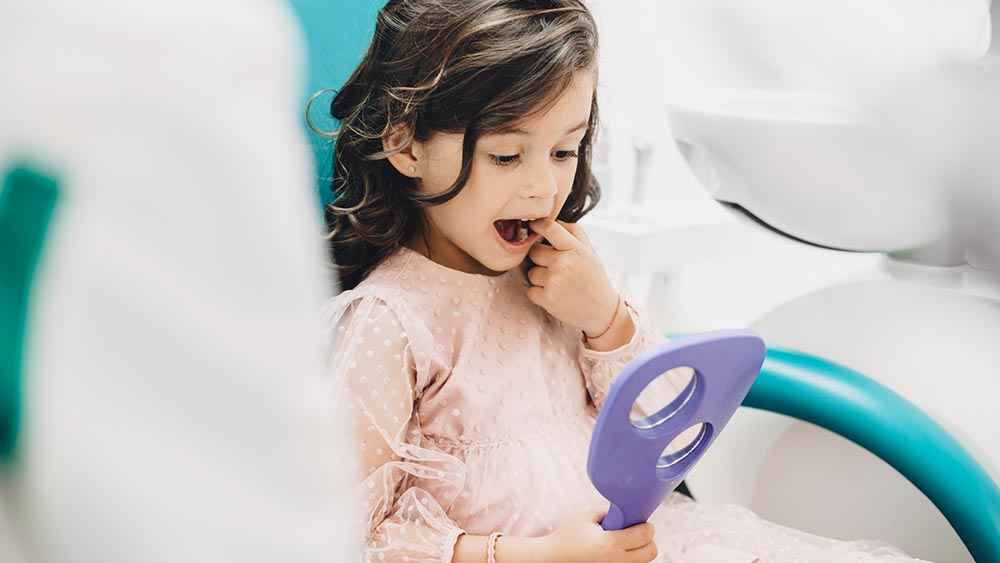Dental problems in children don’t necessarily have to do with teeth alone. They are a mix of the child’s functional and dietary habits. Child dentition is always growing and changing. It is the basis for your lifelong oral health. Certain habits leave a huge influence on how dentition and a child’s face grow. A peek into a child’s oral health can actually also give an insight into their complete nutritional and even psychological health. Read along to learn the most common dental issues in children and how to spot them in your child to get the necessary care.
1. Early childhood caries and rampant caries
This is when your child has multiple repetitive or extensive cavities in their early couple of years. The reasons might be genetic or functional like leaving a feeding bottle in their mouth for a prolonged time. Sometimes it might even be a sign of a syndrome or abnormality.
2. Cracked or chipped tooth
Another common occurrence in kids. Might be in the playground or a playful tackle. In some cases, the entire tooth might also come out of the socket. In such cases, rush to our dentist as soon as possible along with the tooth. Your dentist can work on such child dental emergencies and save the tooth.
3. Thumb sucking
Thumb sucking is normal in infants up to 1 year. In some children, even till the ages of 2 or 4. But if your child is still sucking their thumb post this age, it might be a psychological habit they developed to calm themselves down. Not only that, but thumb sucking can cause a lot of negative changes in dentition, like a high palate, proclined front teeth, poor oral hygiene, and more. A habit-breaking appliance can do wonders if given at an early age.
4. Mouth breathing
Some children have the habit of breathing through their mouths, maybe in the night or even during the day, this might be due to poor oral muscles or even jaw placement issues. Mouth breathing leads to a lot of gum issues and poor oral hygiene like constant mouth breathing. The child is easily susceptible to cavities too. Talk to your child’s dentist to get an early intervention and treatment.
5. Tongue thrusting
The usual healthy swallowing pattern is where you place your tongue on the roof of your mouth. However, some children with poor oral musculature have a habit of thrusting the tongue toward the lower front teeth while swallowing. This causes spacing between the teeth which might lead to further dental issues. Your pediatric dentist might suggest some muscle-strengthening exercises for this.
6. Poor oral hygiene
As children start to brush on their own, they might overlook the proper brushing techniques and be done with brushing within minutes. These can lead to debris accumulation and bad breath. They will not be able to notice such oral hygiene issues by themselves. It is very important to get a regular dental checkup at this stage as we do not want any irreversible damage to the child’s teeth.
7. Crowding
Certain conditions like spaces and minute crowding are common until the age of 12 – 14, but if your child has any of the above-mentioned habits or has not gotten a dental checkup, there are high chance that this issue might have progressed. Crowding not only leads to food accumulation and cavities but also to an extensive orthodontic/ braces plan. Many times missing teeth or teeth impacted deep in bone go unnoticed till the child grows into an adult and develops irreversible pain. Hence an orthodontic consultation and radiographs are a must as the child nears the age of 12 – 14.
Along with these issues, there are many other conditions that might go unnoticed. The dental health in your childhood determines your overall dental health. If you want to prevent repetitive dental problems and extensive treatments for your child, then book your consultation now.

